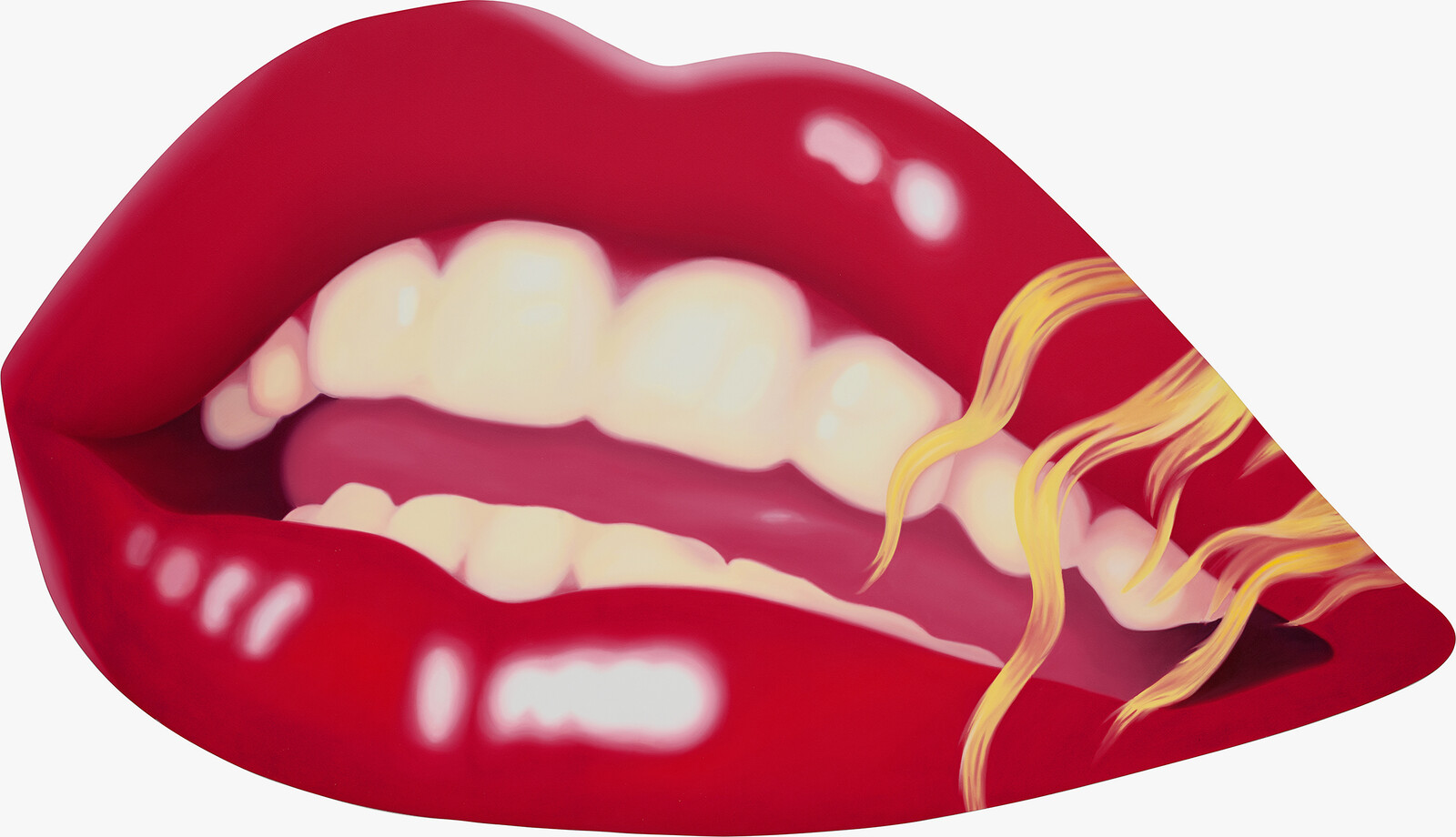October 17, 2024–February 24, 2025
Fondation Louis Vuitton’s 2024–2025 artistic season marks the 10th anniversary of its opening. The Fondation’s rich programme of exhibitions continues to demonstrate the influence of Modern Art masters on today’s artists (Matisse, Rothko, Kelly) and evoke the main lines of its Collection: Contemplative, Popist, Expressionist, and Music/Sound. The upcoming programme will include Pop Forever, Tom Wesselmann &… (October 17, 2024–February 24, 2025) as well as exhibitions dedicated to David Hockney (spring 2025) and Gerhard Richter (autumn 2025).
Dedicated to Pop Art, Pop Forever, Tom Wesselmann & …, explores one of the major artistic movements of the 1960s, whose influence continues to be felt across all continents and amongst all generations.
Centered around Tom Wesselmann (1931–2004)—one of the leading figures of the movement—with a selection of 150 works, the exhibition will also feature 70 works by 35 other artists, representing different generations and nationalities, all sharing a common sensibility for “Pop”—from its Dadaist roots to its contemporary manifestations, and from the 1920s to the present day.
In addition to works by Tom Wesselmann, the exhibition includes works by Derrick Adams, Ai Weiwei, Njideka Akunyili Crosby, Evelyne Axell, Thomas Bayrle, Frank Bowling, Rosalyn Drexler, Marcel Duchamp, Sylvie Fleury, Lauren Halsey, Richard Hamilton, David Hammons, Jann Haworth, Barkley L. Hendricks, Hannah Höch, Jasper Johns, KAWS, Kiki Kogelnik, Jeff Koons, Yayoi Kusama, Roy Lichtenstein, Marisol, Tomokazu Matsuyama, Claes Oldenburg, Meret Oppenheim, Eduardo Paolozzi, Robert Rauschenberg, Martial Raysse, James Rosenquist, Kurt Schwitters, Marjorie Strider, Do Ho Suh, Mickalene Thomas, Andy Warhol and Tadanori Yokoo.
More than just a retrospective, “Pop Forever, Tom Wesselmann &… will contextualize Wesselmann’s work within art history, and offer fascinating perspectives on Pop Art, past, present and even future”. (Dieter Buchhart and Anna Karina Hofbauer, the exhibition’s guest curators)
In the late 1950s, Pop Art surged in North America and Europe. Comic strips, advertising, cinema, celebrities, food processors and tabloids all became painting subjects. When they were not paintings in themselves, they were photographic images glued or mechanically reproduced onto the canvas. Pop Art celebrates, with a degree of ambiguity, the marriage of art and popular culture, of museums and galleries and the cultural industry. With no manifesto and no boundaries, Pop Art denominates an aesthetic that extends far beyond the artistic realm and prevails to this day. It is difficult to say when Pop Art begins, and certainly impossible to close the chapter on it. It is this premise of a timeless Pop Art, “Pop Forever,” that is presented in a two-pronged exhibition which is simultaneously a retrospective and a thematic show.
Tom Wesselmann is immersed in the intellectual and aesthetic climate of the “Pop” era from which his work emerged, and which continues to frame it to this day. Wesselmann began painting in the late 1950s. Though an admirer of the visual impact of American abstract painters, he embraced the iconographic vocabulary of his time, incorporating advertising, billboards, images, and objects in his work. He consciously pursued the classical genres of painting (still life, nude, landscape) while broadening the horizons of his art, both in terms of subject matter and technique. Halfway between painting and sculpture, his works also incorporate multimedia elements (light, movement, sound and video). As for his huge, spectacular Standing Still Lifes, at the crossroads between painting and installation, they introduce a format hitherto unseen.
With works ranging from Wesselmann’s first collages in 1959 to his large-scale embossed still lifes, his landscapes—which lie on the fringes of abstraction—and his 2004 Sunset Nudes, the exhibition will span across all four floors of the Fondation’s building.
The exhibition, which will be chronologically linked to Wesselmann’s works and themes, will use the artist’s work as a starting point to develop a more general presentation of Pop Art. His Great American Nudes in dialogue with the American icons of his contemporaries (Evelyne Axell, Jasper Johns, Roy Lichtenstein, Marisol, Marjorie Strider and Andy Warhol). The Dadaist roots of Pop Art (Marcel Duchamp, Kurt Schwitters) the precursors to his large collages. As for his depictions of consumer goods, they prefigure the representations of merchandise in the age of globalization by Jeff Koons or Ai Weiwei. Finally, his nudes and intimate domestic scenes mirrored by new works from a new generation, some of which (Derrick Adams, Tomokazu Matsuyama and Mickalene Thomas) have been created specifically for the exhibition.

